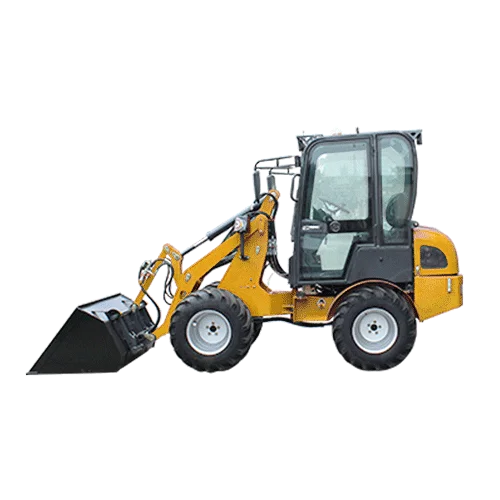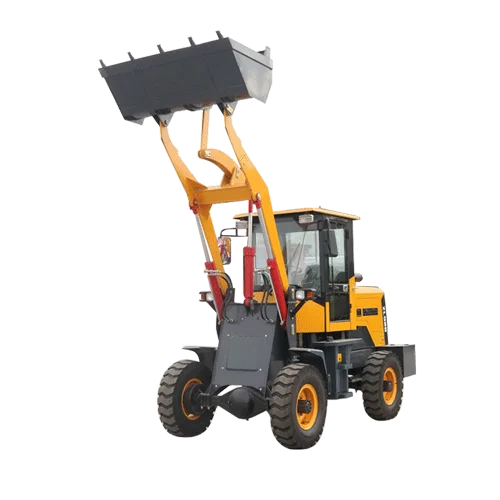Welcome to My Blog!
Before we dive into the content, I’d love for you to join me on my social media platforms where I share more insights, engage with the community, and post updates. Here’s how you can connect with me:
Facebook:https://www.facebook.com/profile.php?id=100087112105480
LinkedIn:https://www.linkedin.com/showcase/99327366/admin/dashboard/
Now, let’s get started on our journey together. I hope you find the content here insightful, engaging, and valuable.
Introduction

In today’s fast-paced construction and industrial sectors, efficiency is paramount. Contractors and businesses alike are constantly seeking innovative ways to streamline operations and reduce costs. Small wheel loaders have emerged as a powerful tool to address these challenges. These compact yet versatile machines offer a range of benefits that can significantly enhance productivity and profitability.
Benefits of Using a Small Wheel Loader
Enhanced Maneuverability: Small wheel loaders are designed to navigate tight spaces with ease, making them ideal for indoor and outdoor applications. Their compact size allows them to access confined areas where larger equipment cannot reach, such as warehouses, factories, and job sites with limited space.
Cost-Effective Operation: Compared to larger equipment, small wheel loaders often have lower operating costs. They typically consume less fuel, require less maintenance, and have lower overall ownership costs. This makes them a cost-effective solution for businesses of all sizes.
Multifunctionality: With a wide range of attachments available, small wheel loaders can perform a variety of tasks beyond material handling. These attachments include buckets, forks, augers, and snow plows, enabling the machine to handle various materials, dig trenches, load trucks, and clear snow.
Key Features of a Small Wheel Loader
Compact Design: The compact design of small wheel loaders allows for easy transportation and storage. They can be easily transported to different job sites or stored in a garage or shed when not in use.
Powerful Engine: Despite their small size, wheel loaders are equipped with powerful engines that deliver ample power for demanding tasks. These engines provide the necessary torque and horsepower to handle heavy loads and challenging terrain.
Advanced Hydraulic System: A sophisticated hydraulic system ensures precise and efficient operation. The hydraulic system controls the movement of the loader arms, bucket, and other attachments, allowing for smooth and accurate maneuvers.
Choosing the Right Small Wheel Loader
When selecting a small wheel loader, it’s essential to consider several factors to ensure it meets your specific needs:
Operating Environment: Assess the terrain and conditions where the machine will be used. Consider factors such as ground conditions, slope, and obstacles to determine the appropriate tire type and ground clearance.
Task Requirements: Identify the primary tasks the machine will perform. This will help you choose the right attachments and engine power. For example, if you need to handle heavy materials, a loader with a higher lifting capacity and powerful engine is necessary.
Budget: Set a realistic budget and compare options from different manufacturers. Consider the initial purchase price, ongoing maintenance costs, and fuel consumption when making your decision.
Applications of Small Wheel Loaders
Small wheel loaders are incredibly versatile and can be used in a variety of industries and applications:
Construction:
- Material handling
- Grading and leveling
- Site preparation
- Demolition debris removal
Agriculture:
- Feeding livestock
- Loading and unloading materials
- Moving hay bales
- Landscaping tasks
Landscaping:
- Grading and leveling
- Digging trenches and holes
- Loading and unloading landscaping materials
- Snow removal
Municipal Services:
- Waste management
- Street cleaning
- Snow removal
- Park maintenance
Maintenance Tips for Small Wheel Loaders

Proper maintenance is crucial to ensure the longevity and optimal performance of your wheel loader. Follow these tips to keep your machine in top condition:
Regular Inspections: Conduct daily inspections to identify and address any potential issues, such as leaks, loose bolts, or damaged hoses.
Proper Lubrication: Lubricate all moving parts according to the manufacturer’s recommendations. Regular lubrication reduces friction and wear, prolonging the life of the machine.
Tire Maintenance: Maintain proper tire pressure and inspect tires for wear and damage. Replace worn tires promptly to avoid accidents and downtime.
Engine Maintenance: Regularly change the engine oil and filter to ensure optimal engine performance and prevent premature wear.
Conclusion
Small wheel loaders are a valuable asset for businesses seeking to increase efficiency and productivity. Their versatility, cost-effectiveness, and ease of operation make them a popular choice in various industries. By carefully selecting the right machine and following proper maintenance practices, you can maximize the benefits of investing in a wheel loader.
FAQ
What is the average price of a small wheel loader?
Prices for small wheel loaders can vary significantly depending on factors such as brand, model, engine power, and attachments. It’s recommended to contact local dealers for specific pricing information.
Can I rent a small wheel loader?
Yes, many equipment rental companies offer small wheel loaders for short-term or long-term rental. Renting can be a cost-effective option for occasional or seasonal use.
